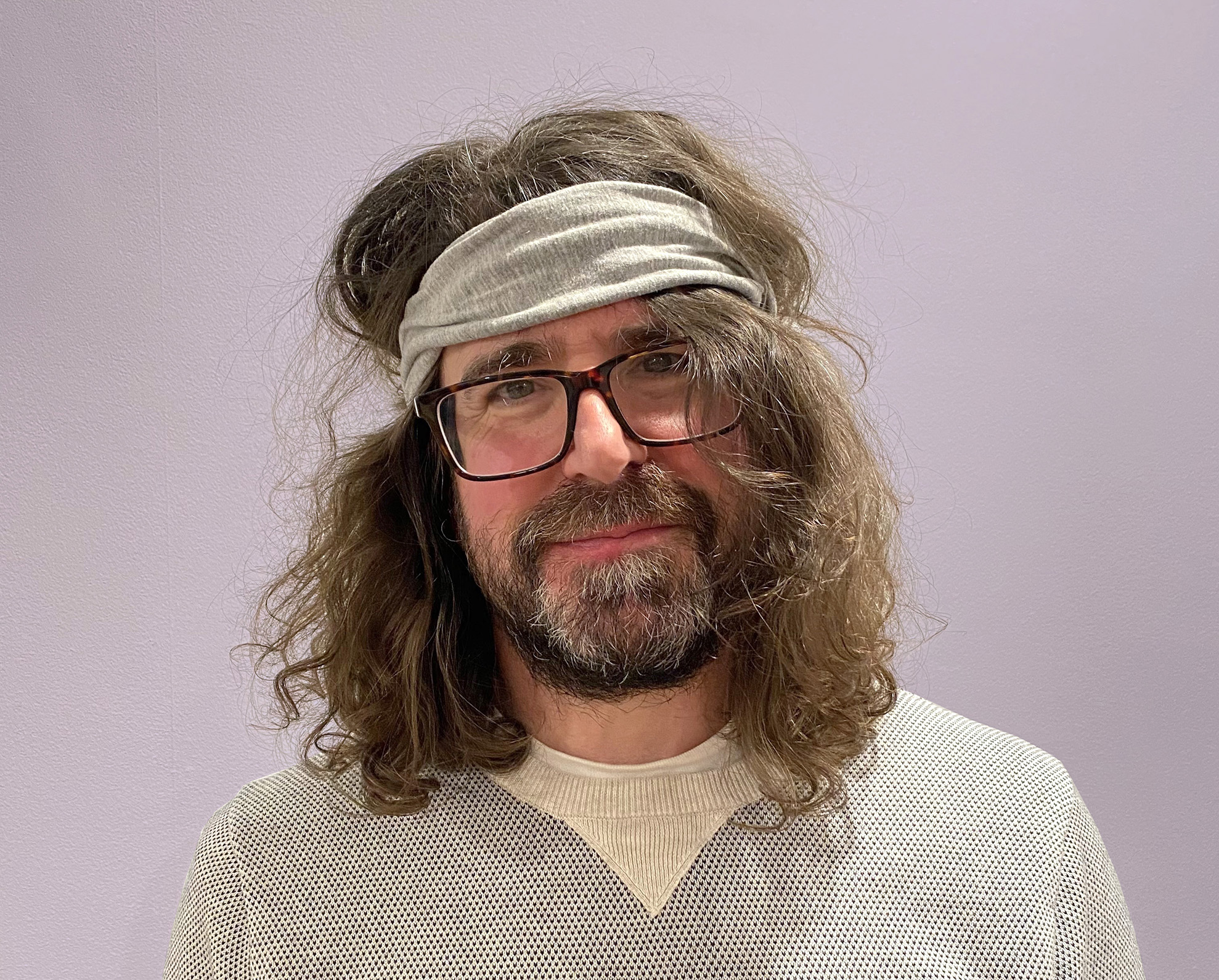
Dan Volohov sits down with Lou Barlow, co-founder of Dinosaur Jr, Sebadoh and solo artist. In the interview for XS Noize, Lou discusses the recently released solo LP – “Reason To Live” and self-searching, the evolution of Sebadoh and the recent releases of Dinosaur Jr, his favourite recordings and lo-fi.
You moved from Los Angeles back to Massachusetts last year. How much has this change affected your creativity?
LB: Where I live now is not as quite as exciting as Los Angeles. So, there’s not quite as much to do. I think that made me do more things. Cause there wasn’t much to do, so I had more time to do more things. Los Angeles is kind of an exciting place. It’s sort of a sensual environment. Where I live now is very cold in the winter and hot and muggy in the summer. So I find myself inside more. I think it has been good for me creatively because I had to create more of my own world now than when I lived in Los Angeles.
What did you feel while writing this album? What pushed you into writing this particular record?
LB: Every song is a little different. This record, I think, seems to be more varied in its subjects. There is a lot of different songs. There are lots of different subjects in the songs. Maybe there was too much heartbreak on my older records – [they] were based on relationships. This one is a little bit more general, which is more how I am in real life. Every day I go from one thing to the next. This album is more of a reflection of what goes on in my brain on a day-to-day basis. Some of it is a bit political, and there’s relationship stuff in there. “Reason To Live” is more of a reflection of my general life and how I am in person.
How much has your perception of the result of your work changed over the years?
LB: Em…It hasn’t. To me, the way things are now is more like it was when I started. When I started, you made a tape and sold it to record stores if you wanted to put out a record. It wasn’t so much about albums or getting record deals. While now – yeah, you can create and put something out any time you want to. So in a way, it’s like what it used to be like for me. I like that too now. I like that everything’s about individual songs. I’m not an album person. I get very obsessed with each song. Each song is like an individual message. Sometimes you put all those individual messages on one record, and it becomes an album. And that’s fine! The way it’s set up now – it’s cool! Because I record a song one day, and if I think, “Oh, I want to make a video for that!” – I just put the link on YouTube, and people listen if they want. Or I can put it on Bandcamp. Right now, I’m uploading something on Bandcamp because I feel like doing it (laughs). I like the freedom of the way it is now. And it does actually remind me of the old days.
Your first solo recordings came out under the name Sentridoh. Then, you put out a series of releases under various names, up to the point when “Emoh” came out in 2005. How much of a self-searching was involved in releasing music under your own name?
LB: That just seemed more practical. That time I had so many things under different names—especially then, at that particular time in the 2000s. I had already had my time in the ’90s when people cared about what I was doing. By the time the 2000s came around, I was old news. I was a has-been, so I thought I would try to consolidate everything I was doing into one name. That was the logic behind it. That record is not that different from anything I’ve done before that. It’s a little different. But it’s just the next step I would have taken. I would have put that record under the name Sentridoh or whatever. Perhaps from the very beginning, I should have used my own name. When everything is too confusing for the listeners, at some point, you lose them ( laughs). At some point, they go away unless you have great success.
All the songs on “Reason To Live” are different. And there is a lot of self-searching on the record. At the same time, you have such songs as “All You People Suck”, which is quite satirical. What made you include this one in “Reason To Live”?
LB: I wrote it at the same time. I wrote and recorded that song on a tour I was on. It was just part of the new songs I was writing. There are several songs on the record that I believe is political. So “All You People Suck” is not that different. The sentiment is a little more extreme ( laughs). It’s really speaking more…I have a hard time with any intolerant people of any political strength. Intolerance is what really tweaks me.
The very first recordings of Sebadoh were just tape recordings, a huge collection of songs recorded on tape with this lo-fi element. After Jason joined the band, you kind of changed your focus. You left the esthetic side but developed a production and presentation manner. How much have these factors affected you on the songwriting level?
LB: It didn’t change anything. The thing is, when Jason joined the band, we started touring more. That’s how we survived. That became important for us to pay our rent, pay for our cars and things like that (laughs). We became a lot more serious. And, you’re logically thinking, because you’re playing as a band, you need to record as a band. The idea is: if you go to the studio, it’s more of a legitimate recording. Which in retrospect, I think that was completely unnecessary. We should have continued to record on to cassette because it sounded better. I prefer the lo-fi sound. If you look at a band like Guided By Voices, for example, their most popular recordings and the recordings that are still peoples’ favourites were recorded on 4-track. That’s just the way! As a band, sometimes you can be challenged to try to make bigger sounding records. But it really doesn’t matter. At the same time, I was going to the studio with Sebadoh, and I was still doing lo-fi recordings – all the time! I always had both worlds happening at the same time.
Since many people use 4-track and tape-recordings for demoing, it isn’t easy to define the moment when a demo becomes an actual song. How do you define it?
LB: I don’t know (laughs). Many times, the sketches are better. That’s the spirit of lo-fi. And I guess with this record – “Reason To Live”, all of those recordings are home recordings. There are some songs I did different versions of. But sometimes, to me, what really makes a complete song is maybe when I feel like I’ve completed the lyrics. Or I have added an extra part that makes it feel finished to me. But that’s what it is conceptual to me. I can take that conceptually finished song and record it on a 4-track – and that would be the recording. There’re lots of songs on “Reason To Live” I recorded on cassettes. I tried very consciously to re-create the sounds of my lo-fi stuff. And the feelings of my lo-fi recordings.
To me, these are still the most interesting things I’ve ever done. That’s just the way I feel. I’ve done very few studio recordings in 30 years of studio recording that I feel are superior to the initial lo-fi burst. But I feel that way about other bands too. There are so many examples throughout rock history when you have bands like The Ramones, for instance. Their first record was recorded for 5000 dollars in a huge studio. But they did it for 5000 dollars in a few days. And that record is the best record they’ve ever done. It just is. That’s the case with so many bands. When Led Zeppelin was recording on 4-track, they’d use 4-track in the late ’60s…And boy, is there anything quite as amazing as the first Led Zeppelin record? I don’t know (laughs). That’s just rock history. The initial burst of a band and quick off the cuff recordings are truly the ones that really endure.
When you write by yourself as Lou Barlow, not the member of Dinosaur Jr. or Sebadoh, don’t you miss the interaction between you and your bandmates?
LB: There’s something that always happens when you record with other people. Another thing I believe other than the superiority of lo-fi recordings – I also think that the best things are made when you really collaborate with somebody. So my collaboration with John Davis for The Folk Implosion to me…We did two things. It was like a meeting of the minds. The end result was greater than the two of us could have done individually. With bands like Dinosaur Jr and Sebadoh – those bands, they’re not really collaborations. In Sebadoh, we’re almost like a collective. We usually come up with songs. We support the songwriters’ vision. When Jason Loewenstein introduces a song to me, I don’t say: “Well, I need the third part, Jason!” or “You should change this!” – we don’t do that. We don’t really get into deconstructing each-others songs and putting them back together. I’ve only had this experience with a few people in my life. And those are the best things I’ve done! Everything that’s truly collaborations is among my favourite recordings.
I can’t but notice that if in Dinosaur Jr you contribute as a bass player and a vocalist, in Sebadoh, you used to record guitar parts and drum parts as well. How does it feel to work when you don’t have this strict division?
LB: Well, actually, it changes. Now I play the guitar with Dinosaur Jr! J plays bass on my songs for Dinosaur Jr., So it’s actually become a bit more like Sebadoh (laughs), which is kind of funny! I was going to say that I like it because, with Dinosaur Jr, my role is so easily defined – I’m a bass player. But that’s actually not the case anymore (laughter). With Sebadoh, I do love switching back and forth between the bass and guitar. I love supporting other peoples’ music. I really love it! And I’m lucky because Jason Loewenstein and J. Mascis are really good songwriters, obviously. And they’re both really talented. They’re both drummers and guitarists. They both are very talented. Jason and J are true multi-instrumentalists. Even in the early Sebadoh days with Eric Gaffney, Eric was also a very talented multi-instrumentalist. Russ Pollard, who was in Sebadoh for a while, was an extremely talented multi-instrumentalist.
In the early works of Dinosaur Jr, above punk-rock and lo-fi elements, we can also hear the presence of conflict that eventually created the great dynamics. Since you rejoined the band, it seems that you found the place where everyone got to an equal position. Is it an ageing thing?
LB: Yes, I think it has a lot to do with ageing. We decided to get back together again. That was kind of a brave thing for us to do (laughter). I’ve said many terrible things about J, and J said a lot of terrible things about me. We had a terrible history together (laughs), And we weren’t really friends. It was a very risky move. But because it was so risky and we’re older now, we just knew what we needed to do to get along. We didn’t get back together again to start fighting. We got back together again to make music and play shows. And to bring music to the fans. I think the one really cool thing about Dinosaur Jr is the one thing J and I really come together on, and we really agree is – we understand that the fans are the most important part of what we do. People like our records because people seem to think we have great chemistry together, that we have great musical chemistry, and the fact that people would see us come and play is the most important thing. Everything else is very secondary. Any sort of ego, any sort of disagreements we might have, is secondary to the music’s importance.
And also, to the importance of our fans. So, because we both agree on it with J, we come together and work together. And we just continue to do that. It’s getting easier every time, which is not always what happens. But I think what we do agree on is something extremely important. A lot of people don’t do that. I know a lot of musicians that don’t believe that the fans are the most important. And they’re still very much struggling and concerned with themselves. They have a lot of rules: “I won’t play that song again! I won’t play the most popular song.” Musicians are very contrary people. They can really resist. They have very particular ideas, integrity and loyalty to their vision that I don’t really relate to that. J and I always had this idea that first and foremost, we’re kind of entertainers (laughs). When we go out on stage, we’re no different than someone in Las Vegas who has to sing their one hit song every single night. We understand that. That’s one thing I really appreciate about Dinosaur Jr., and I appreciate about J. He and I definitely agree we’re getting paid to do something very particular. And we do it.
Once, you mentioned that you basically evolved from hardcore punk at the band’s beginning as Deep Wound was. And you personally took that punk or hardcore element to whatever you’ve been doing. At the same time, the very first albums of Sebadoh are far away from punk. Even though the esthetics of punk is there, but was it the meaning of punk that had changed for you at that point or just your attitude that evolved to a degree?
LB: I think what I love about punk and what still informs what I do, it’s not just…You call it “punk”, but what that really is – it’s artistic if you’d look at any kind of art. Whether it’s visual or images, or writing. I think the real artists are always trying to keep that spark, keep that initial desire to create. In a way, we’re really addicted to the feeling of doing something new. And also, just belief! The tireless belief that you have something to add to the world. What was so amazing about hardcore – it was a very democratic thing. It came on the heels of rock-n-roll [that] had developed in the ’60s. It was an incredibly vibrant and absolutely new art form in the ’70s; people made so much money from music. It became such a large business.
I think the original artistic vision was a little diluted. There’s no doubt that there have been people doing incredibly artistic stuff throughout the entire history of music. But in a general way, there was the feeling that that initial fire needed to be rekindled, and that was what punk-rock was. When I heard punk-rock, it gave me the feeling that I can also create. I didn’t have to be a virtuoso; I didn’t have to be a prodigy…All I needed was a desire to create. And I could create. That’s what punk-rock was about, which is really just a basic creative urge that was handed down from time to time all through history – blah-blah-blah. But in the musical context, people of my age, from the late 60’s – the early ’70s, had to be reminded that you can actually do something. And you don’t have to be Eddie Van Halen. Through your own will and determination, you can find your own voice. That’s what punk-rock was for me.
In the opening track of “Reason To Live” – “In My Arms”, there’s a lyrical reference to this initial spark you had while taking the guitar for the first time, if I got it correctly.
LB: Oh, yeah, you’re absolutely right!
But do you refer to the very first moment or the very beginning of your solo career with this song?
LB: I do. The beginning of the song is the cassette recording I made in probably 1982. It was one of the first melodies I came up with. It was just a guitar-playing. It was the beginning of this very rudiment song. It was the song; the melody and the actual cassette has been with me since 1982. But I have never forgotten about it and always wanted to re-address it. When I was re-addressing the song when I decided to re-embrace it. I looped the guitar part and created a 3- or 4-minute instrumental with just this riff. And then, getting into a song, I realized that song need to be about my music, what I’ve been talking about – and rediscovering the initial spark. It’s literally exactly what the song is about. It’s about re-embracing. And also feeling re-embracing being able to create.
Having so many elements presented in your DNA, what usually defines that combination of them on this or that particular record? Especially speaking If about “Sweep Into Space”, – much more melancholic record than your previous album.
LB: I don’t know…( laughs ). It sounds the same to me! In a good way. I actually thought the new record sound pretty upbeat.
Really?
LB: Yeah. What J is singing about is pretty consistent to me. So as far as the balance and how the things are… I’m not sure. To me, the way I play with Dinosaur Jr it’s the way I played in 1985. It’s the same! Just me doing “Baam!” – hitting the strings as hard as I can. I haven’t altered my method or my style much with Dinosaur Jr since the day we started.
One of the songs on this record that really resonated with me was “Garden”, which is romantic and tragic to a point. With it, do you refer to a real place and situation you personally experienced?
LB: Oh, it’s exactly how I was feeling! When I finished the song a few years ago, I had such a strong sense of foreboding. In general, there are so many people where I live who’re literally obsessed with gardening, farming and food. Food is such a big theme in my life -trying to eat better. There’s a very literal feeling of back-to-the-garden. I was finishing the lyrics driving between my home and where J lives. Between my house and his house, I was just driving between miles and miles of farmland. And I was driving, trying to sing the song and come up with the lyrical hook, and I looked and saw in the middle of the garden “Back To The Garden”. I thought there, here we go! That’s what I’m singing about! It’s a feeling of trying to find a place of safety. Of mental health, physical health and how that feeling was such a big part of the last five or six years. I had a great sense of unease. I always do, to be honest. About people, political ways, and the way things are swinging back and forth so wildly.
When you started writing with the initial spark, were there things that worried you or something else?
LB: Oh yeah, always things that worry me! That’s another thing about punk-rock! All the songs I was listening to, all the songs I was listening to when I was a kid, I look for – punk-rock, new-wave… It’s all about being uneasy (laughs). It’s all about anger and depression. I was very into goth music; I loved industrial music, I loved very angry punk-rock. That kind of singing about things that are bothering you was certainly a huge part of my early days. When I was empowered to start writing my own music and the music that inspired me to do that was music about worry, for sure.
You’ve always been speaking about “You’re Living All Over Me” as about a certain specific experience you had as a band. And to a point, you reached the balance between numerous styles in your sound palette, whether it’s folk, metal, punk or post-punk. What created this characteristic balance between the three of you at that point?
LB: J and I have always had similar tastes and Murph. He has always played whatever he was asked to play. The problems that arose in the band were purely personal. “You’re Living All Over Me” was made at a time before we started extensive touring. Touring was very difficult for the band and created an atmosphere of claustrophobia and annoyance that quickly affected how the band worked.
Reason to Live Album – out now
(Joyful Noise Recordings)
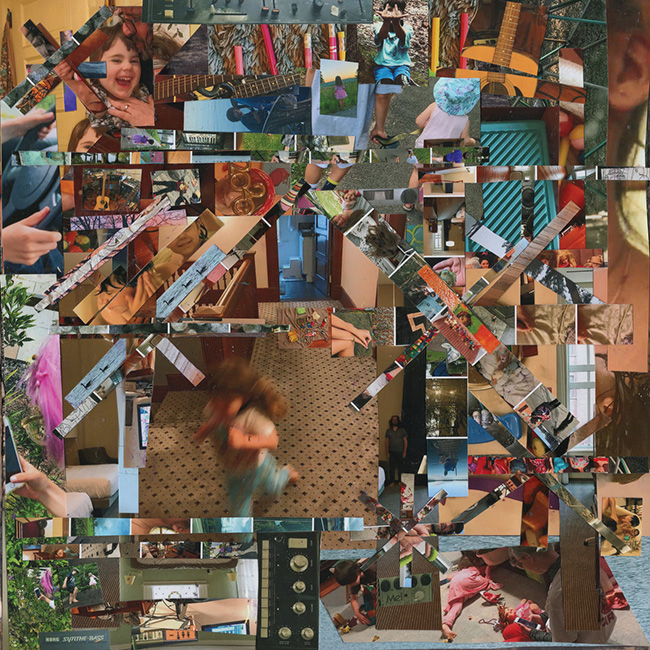

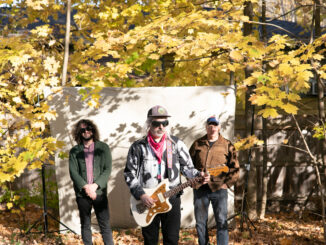
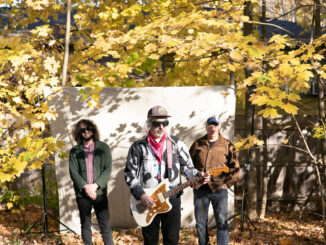
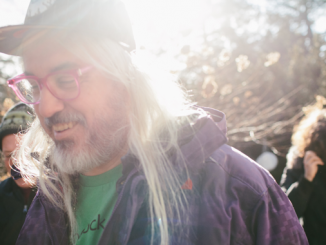

Be the first to comment